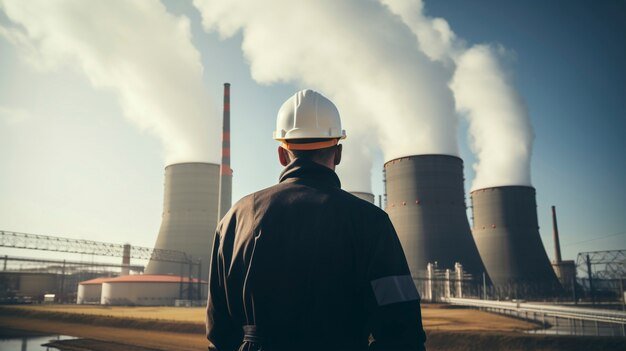The Lithium Refining Business: A Booming Industry in the Era of Electric Vehicles
In the age of rapid technological advancement and environmental consciousness, lithium has emerged as a crucial resource, particularly for the electric vehicle (EV) industry. The surge in demand for lithium-ion batteries, which power EVs and a myriad of other devices, has propelled the lithium refining business into the spotlight. As nations seek to reduce carbon emissions and move toward greener alternatives, the lithium refining industry is experiencing unprecedented growth. This article delves into the significance of lithium, the refining process, its global market, challenges, and the future outlook of this business.
Importance of Lithium
Lithium, a soft, silvery-white metal, plays a crucial role in producing rechargeable batteries for EVs, smartphones, laptops, and renewable energy storage systems. Its high energy density, lightweight properties, and efficiency in energy storage make it indispensable for manufacturers in today’s energy transition.
As the global economy shifts towards sustainable solutions, lithium is playing a pivotal role in supporting this movement.
Lithium Refining: The Process
Lithium refining involves extracting lithium from ore or brine sources and purifying it for use in various industries, especially in battery production. There are two main methods of extracting lithium: from spodumene (a lithium-rich mineral) and from lithium-rich brines found in salt flats.
- Hard Rock Mining (Spodumene): Traditional mining methods extract lithium from spodumene. After mining the lithium ore, workers crush, grind, and roast it before refining it through chemical processes. The refining process typically involves sulfuric acid to create lithium sulfate, which is later purified into battery-grade lithium carbonate or lithium hydroxide.
- Brine Extraction: In addition to mining, companies extract lithium from lithium-rich brines found in salt flats. They pump salty water from underground pools and spread it over large areas to allow evaporation. This process leaves behind a lithium-rich solution. Technicians then treat the solution to remove impurities, producing battery-grade lithium products.
The brine extraction process is cheaper and less energy-intensive compared to hard rock mining, but it takes a significantly longer time (up to 18 months) to evaporate the brine, which can be a limiting factor in meeting rapid demand increases.
Global Market Overview
The global lithium market is rapidly expanding, driven by the growth of electric vehicles, energy storage, and personal electronics. By 2028, the global lithium market is expected to reach over $14 billion, a sharp increase from the current value. Several key factors contribute to this growth:
The EV Boom: Major automotive companies such as Tesla, Ford, and GM are investing heavily in EV production, spurred by governmental policies aimed at reducing carbon footprints and eliminating gas-powered vehicles. The demand for lithium-ion batteries is expected to grow exponentially, with lithium being a primary component of these batteries.
Energy Storage Systems: Renewable energy sources such as solar and wind require efficient energy storage systems to provide continuous power. Lithium-ion batteries are increasingly used in grid storage systems, driving further demand for refined lithium.
Geopolitical Considerations: China currently dominates the lithium refining market, accounting for over 60% of global lithium refining capacity. This has raised concerns in the U.S. and Europe, where governments are investing in lithium refining capabilities to reduce dependence on Chinese suppliers.
Challenges Facing the Lithium Refining Business
Despite its booming demand, the lithium refining industry faces several challenges:
- Environmental Concerns: The extraction and refining of lithium, particularly from brines, can have significant environmental impacts. The process uses vast amounts of water, often in regions already facing water scarcity. Additionally, mining lithium from hard rock generates waste and carbon emissions, contributing to environmental degradation.
- Supply Chain Issues: While lithium reserves are abundant, refining capacity has not kept pace with demand. As a result, there are concerns about future supply chain bottlenecks, particularly as more countries move to secure their own lithium supplies. Developing new lithium mines and refining facilities can take years, further compounding the issue.
- Price Volatility: The price of lithium is notoriously volatile. While it has seen significant increases due to rising demand, fluctuations in market supply, technological advancements, and geopolitical factors can cause price instability, affecting the profitability of the lithium refining business.
- Technological Advancements: As battery technology evolves, there is growing research into alternative materials such as solid-state batteries or sodium-ion batteries. While these technologies are still in their early stages, they could eventually reduce dependence on lithium, posing a potential long-term challenge for the industry.
The Future of the Lithium Refining Business
The future of the lithium refining business looks bright, with demand for lithium expected to grow significantly in the coming decades. To meet this demand, there will likely be substantial investments in expanding refining capacity and improving refining technologies. Governments worldwide are taking steps to develop domestic lithium supply chains, particularly in the U.S., Canada, and Europe, where companies are initiating new lithium mining and refining projects.
Additionally, advancements in recycling technologies could play a crucial role in supplementing future lithium supply. Recycling spent lithium-ion batteries not only addresses environmental concerns but also provides a potential source of lithium, reducing the need for new mining operations.
The lithium refining business is also expected to benefit from more sustainable mining and refining practices. Companies are working to minimize water usage, reduce carbon emissions, and adopt cleaner energy sources in their refining processes, aligning with global efforts to combat climate change.
Conclusion
The lithium refining business is a rapidly growing sector, fueled by the increasing demand for electric vehicles, energy storage systems, and personal electronics. As the world continues to move toward sustainable energy solutions, lithium will remain a key player in powering the future. However, challenges such as environmental concerns, supply chain bottlenecks, and price volatility must be addressed to ensure the industry’s long-term viability. Despite these obstacles, the lithium refining business presents significant opportunities for growth, innovation, and contributing to a greener, more sustainable world.





Post Comment